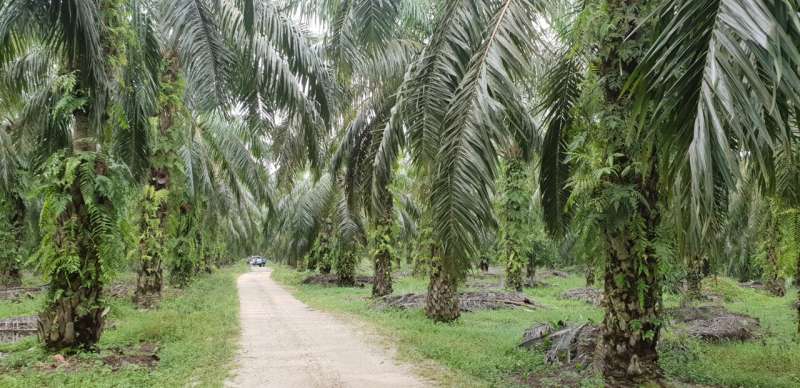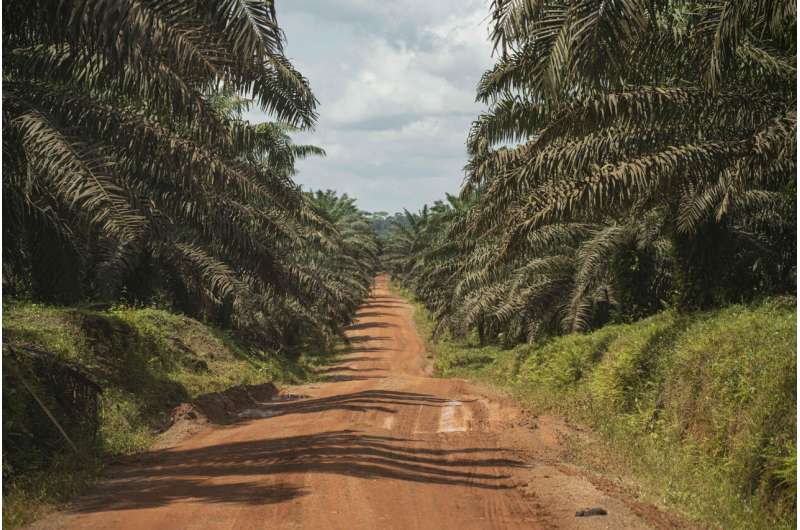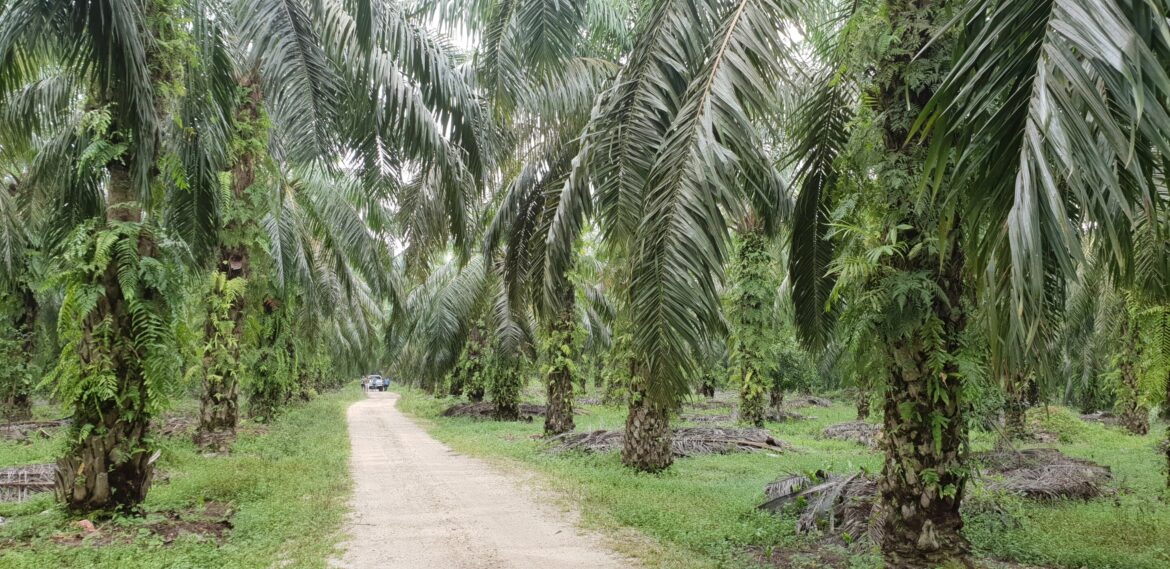
A palm forest with a dirt road. Credit: Erik Meijaard
Palm oil isn’t inherently bad, and olive oil isn’t inherently good, say conservation scientists in an opinion paper published in Cell Reports Sustainability.
They argue that the vegetable oil industry is haunted by narratives and myths about different types of oil crops, but the reality is much more nuanced.
Almost all oils—including soybean, olive, coconut, and sesame oil—are associated with biodiversity and human rights issues in some contexts, depending on crop management and supply chains. The researchers call for greater transparency and regulation to enable consumers to make informed decisions about their oil choices.
“Crops don’t destroy forests and other biodiverse habitats; people do,” says author and conservation scientist Erik Meijaard of Borneo Futures and the University of Kent. “We want to bring more nuance to the discussion around vegetable oils, to make consumers aware that there’s nothing simple about it. I challenge everyone to look a little deeper, if you care about social and environmental issues.”
Palm oil has been vilified in the Global North due to concerns about tropical rainforest deforestation and the destruction of orangutan habitats. The researchers say that this concern is justified but that other oil crops can cause just as much ecological damage.
For example, soybean production has driven massive deforestation in South America and is associated with large-scale pesticide use and related human health issues in South America; olive harvesting kills millions of roosting birds every year; and sesame production has been linked to human rights abuses in South Sudan and Ethiopia.
Palm oil production also isn’t always bad, the researchers say. Subsistence farmers (i.e., farmers who grow crops for their own needs) in Central and Western Africa account for around 18% of the land used globally for oil palm cultivation, but this traditional cultivation is usually overlooked in global statistics. Additionally, the increased scrutiny that palm oil has received over the past two decades has driven tighter regulations and certification within the industry.

Palm oil site. Credit: Erik Meijaard
“There’s been so much pressure on the palm oil industry to improve sustainability practices, it’s pushed part of but certainly not the entire industry into a much better direction,” says Meijaard.
The researchers acknowledge that making informed shopping choices is currently very difficult due to a lack of transparency and traceability within the vegetable oil industry.
“Opaque supply chains within the industry mean that even if you do want to know what the impact of your consumption really is, you can’t,” says Meijaard. “You should be able to walk up to a product with your mobile phone and point at a QR code, and it should be able to tell you whether that product’s production aligns with your values. The technologies already exist; it’s just a matter of how to scale it in a cost-effective way.”
Improving transparency within the oil industry will require international policy changes and regulations, the researchers say. They also emphasize the importance of providing incentives to reward businesses that meet high sustainability and traceability standards.
“I think governments can provide regulatory reform that requires more transparency, more openness about where products came from, how they were produced,” says Meijaard.
“We also call for a greater role of media and influencers to start helping give people the nuance that they deserve. We need to be much better informed about the trade-offs in any of these polarized debates that are happening around vegetable oils.”
More information:
No Oil Crop Is Inherently Bad — But Our Thinking Might Be, Cell Reports Sustainability (2025). DOI: 10.1016/j.crsus.2025.100524. www.cell.com/cell-reports-sust … 2949-7906(25)00220-4
Citation:
Palm oil isn’t necessarily less sustainable than other oil crops, say conservation scientists (2025, October 16)
retrieved 18 October 2025
from https://phys.org/news/2025-10-palm-oil-isnt-necessarily-sustainable.html
This document is subject to copyright. Apart from any fair dealing for the purpose of private study or research, no
part may be reproduced without the written permission. The content is provided for information purposes only.


Dining and Cooking